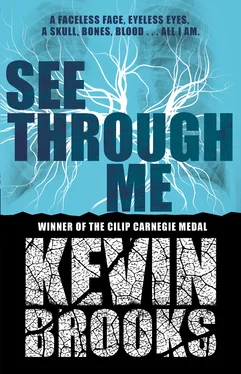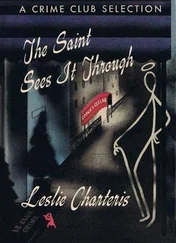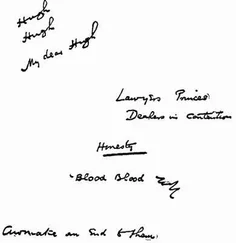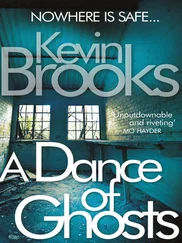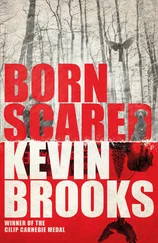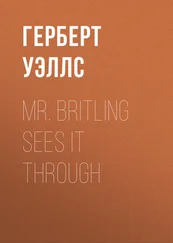I don’t know what it was that made me stop. Just a feeling, perhaps . . . an instinctive sense that something was wrong . . .
I don’t know.
I called out to her again – ‘Mum?’ – and although I tried to sound as carefree as possible, as if somehow that would make everything okay, my voice sounded strained. I cleared my throat, stepped closer to the door, and tried again . . . louder this time – ‘Mum! Are you in there? MUM!’ – not caring anymore how I sounded, just desperate for Mum to reply.
But she didn’t.
I gave it one last go, this time knocking hard on the door as well as calling her name, but even as I was doing it I knew in my heart it was a waste of time. I knew what I had to do. And I knew I just had to do it.
I reached for the handle, opened the door, and stepped through into the bedroom.
The curtains were closed.
Mum was in bed.
She was lying on her side, under the duvet, her head just visible, facing away from me . . .
Very quiet, very still.
‘Mum?’ I said softly.
Nothing.
I couldn’t move . . . I didn’t want to move. As long as I stayed where I was – just inside the doorway – I wasn’t close enough to the bed to see Mum’s face, and if I couldn’t see her face, I wouldn’t know for sure why she was just lying there like that . . .
I didn’t want to know.
If I didn’t know, it couldn’t hurt me.
I stood there barely breathing for maybe a minute or so, hoping against hope that if I kept perfectly still and didn’t make a sound I’d hear something familiar in that unearthly silence – a breath, a cough, a sniff, a sigh . . . anything at all . . .
There was nothing.
Something made me move then. Something . . . I don’t know what it was. What makes you do any thing? My mind had shut down now, and as I crossed over to the bed I wasn’t thinking or feeling anything. It was as if I was set on automatic – just walking, moving, doing what I was doing . . . moving round the foot of the bed . . . then along the side where Mum was lying . . . seeing her head on the pillow . . . seeing her face . . . her lifeless eyes, staring at nothing . . .
I collapsed then, slumping down onto the bed, and I took her in my arms and held her tightly, cradling her head to my chest.
She was horribly cold . . .
Cold and stiff.
Whenever I think of Mum now, that’s what I remember – that terrible cold deadness. I feel it in the palms of my hands.
The doctor who examined Mum’s body couldn’t confirm a cause of death, and when the coroner ordered a post-mortem, the pathologist didn’t find anything either. No heart problems, no cancer, no blood clots . . . no drugs, no alcohol, no poison . . . nothing at all that could have led to her death. I remember someone saying at the time that ‘it was as if her life was just suddenly switched off’. The only thing the post-mortem established was that Mum probably died some time between one o’clock and eight o’clock that morning.
The coroner opened an inquest into Mum’s death, and during the investigation we were all asked lots of questions. Dad was also interviewed by the police, both at home and at the police station.
The inquest took a long time, but in the end it all came to nothing. There was still no reasonable explanation for Mum’s death. No one could say how she died, or why, and the coroner had to return an open verdict. The cause of death was officially recorded as ‘unknown’.
There were a lot of things I didn’t understand at the time – and even now I’m not sure I know the whole story – and I didn’t (and still don’t) fully understand how some of these things affected Dad. I know he was really angry about the police getting involved – he flatly refused to even speak to them at first – and it was around that time that he had a blazing row with Nan, my mum’s mother. I found out later what it was all about, but all I knew then was that he’d banned her from our house, and Finch and I weren’t allowed to see her anymore.
There was a period when I think Dad blamed himself for Mum’s death. If only he’d checked on her that morning, if only he hadn’t left without saying goodbye, if only . . . if only . . . if only . . .
But at some point, I think he stopped feeling guilty. I could be wrong, of course – it wouldn’t be the first time – but as time went on, and things kept going from bad to worse, I got the feeling that Dad started blaming Mum for everything. He never actually said as much, but by this time he very rarely spoke about her anyway. If me or Finch asked him something about her – or even just mentioned her – his face would go blank, and he’d either just walk away or change the subject and carry on as if nothing had happened.
On the day after the first anniversary of her death, he went round the house collecting all her stuff together – clothes, books, jewellery, shoes, boxes full of old photographs . . . anything that was hers and hers alone – then he loaded it all up in the car and drove off without telling us where he was going. When he got back home, the car was empty.
I really don’t know what was going on his head, but there were times when the truth was so clear in his eyes that his feelings about Mum were unquestionable.
It was all her fault.
If she hadn’t died, he wouldn’t have been maligned and humiliated by the police, and he wouldn’t have had to waste his time dealing with Nan, and he wouldn’t have had to sacrifice everything now that Finch was so ill . . . he wouldn’t have had to give up his job, and he wouldn’t have had to dedicate his whole life to caring for his son . . .
And now here I was, adding yet another burden to his shoulders, and giving him yet another thing to blame on Mum.
But, like I said, I could be wrong.
And even if I’m not, you can’t help how you feel, can you? Wherever your thoughts and feelings come from – your heart, your mind, your soul – it’s just as much beyond your control as everything else that makes you what you are. Blood, enzymes, hormones, proteins, cells, organs, neurochemicals . . .
You don’t control any of it.
It controls you.
Dad was late.
It was gone twelve-thirty when he finally arrived – a hesitant knock on the door, a muttered voice – ‘Kenzie? It’s me . . .’ – and as I got up from the settee, intending to let him in, the door opened just enough for him to poke his head through.
‘All right if I come in?’ he said.
He was doing his best to smile at me, and I knew it was a genuine attempt rather than something he was forcing himself to do, but he just didn’t have it in him. As he stepped through the door and closed it behind him, I could see the turmoil in his eyes and the nervous hesitancy in his movement, and I couldn’t help feeling sorry for him. Imagine how he must have felt – facing up to his mutant daughter, her disfigurement hidden beneath a ludicrous disguise . . . not knowing what to do, or what to say, or where to look, or how to feel . . .
Who wouldn’t be bewildered by all that?
He was carrying a holdall in his hand, and as he turned from the door and started speaking to me he couldn’t stop fidgeting around with it – swinging it against his leg, twisting the hand straps, bobbing it up and down . . .
‘I’m sorry I’m late, Kenzie,’ he said. ‘We’ve been having a lot of problems with the carers, something to do with their shift patterns or something, and then when I did get going there was an accident on the A13 –’
‘It’s all right, Dad,’ I told him. ‘It doesn’t matter.’
‘Where do you want this?’ he said, holding up the bag. ‘It’s your clothes and stuff, books, soap, toothbrush . . . I wasn’t sure what to bring . . .’
Читать дальше
